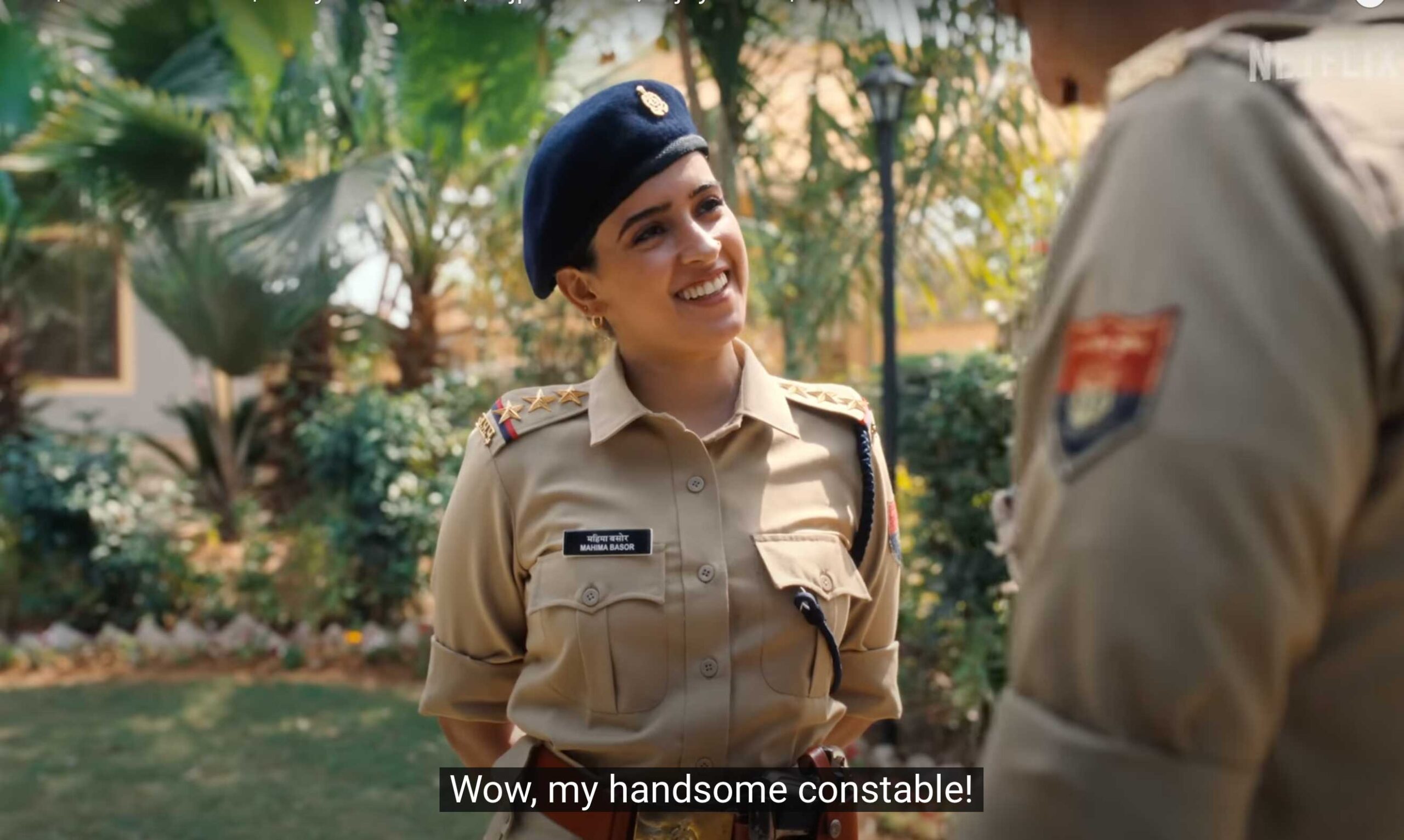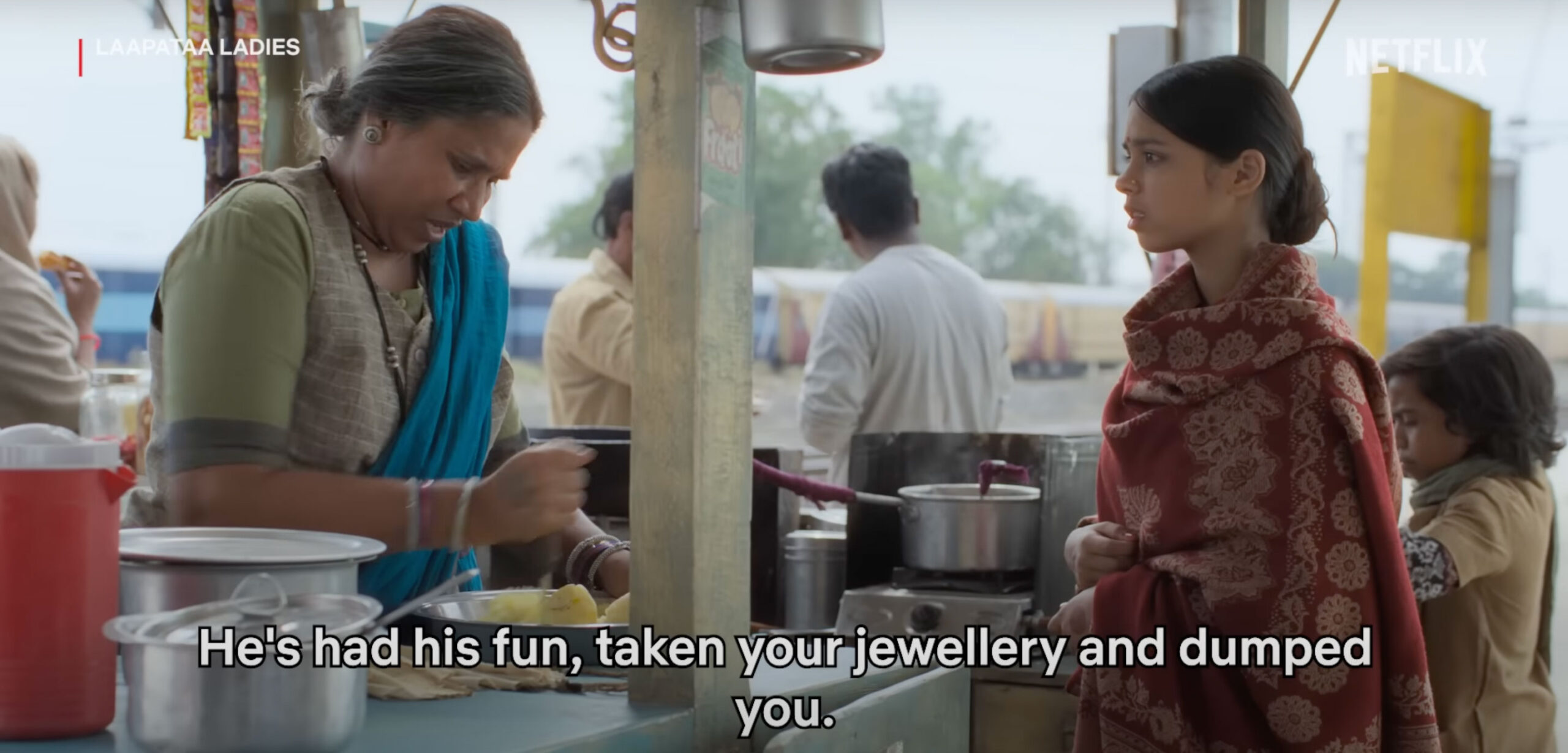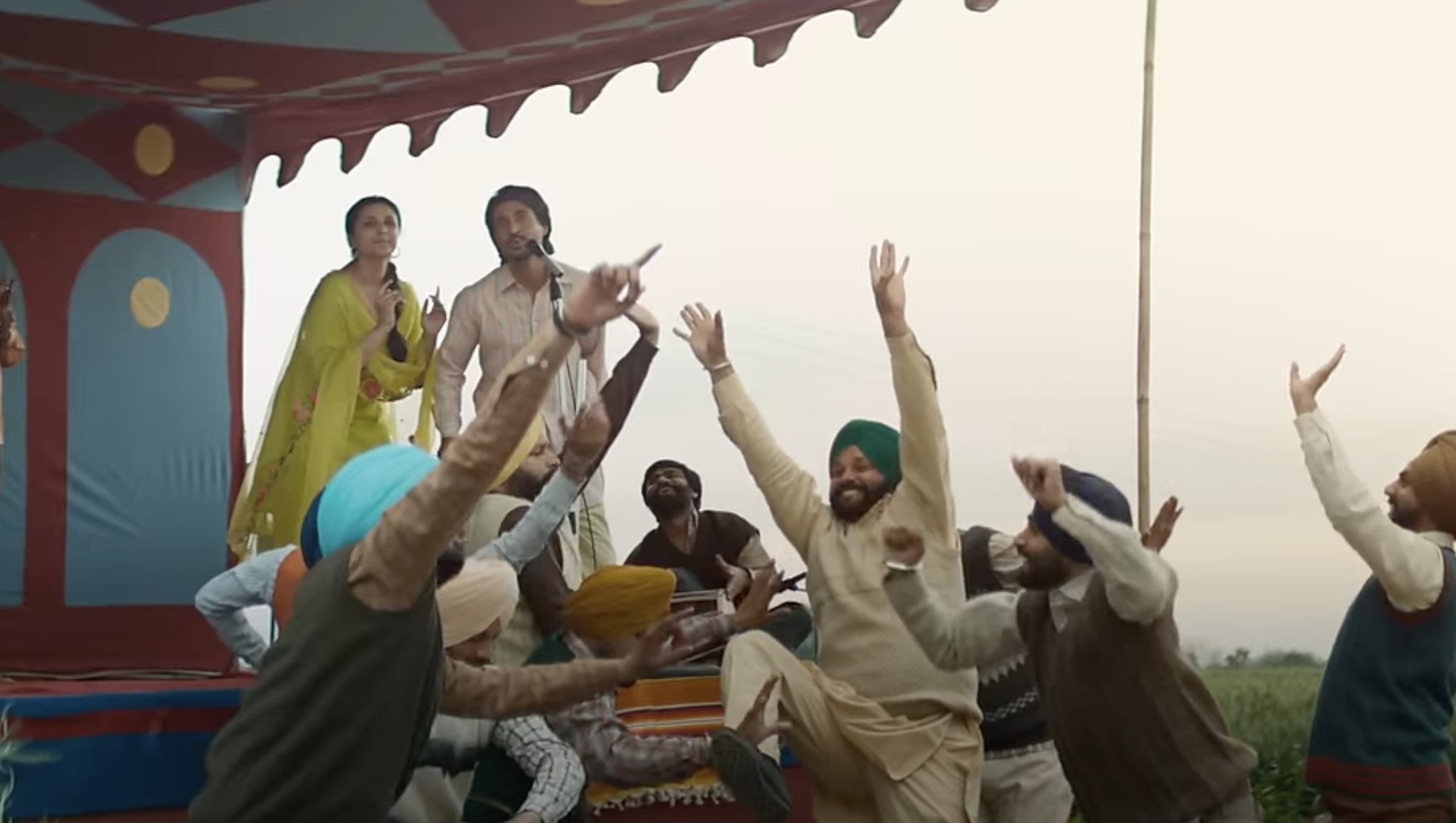Kathal: A Jackfruit Mystery is a satirical comedy-drama film set in a small Indian fictional town called Moba. The story revolves around the disappearance of two rare and exotic “Uncle Hong breed” jackfruits (kathal) from the garden of a powerful MLA’s house. As the news spreads, the police come under immense pressure to find the missing fruits before they ripen and are consumed. The film is directed by Yashowardhan Mishra, who also co-wrote the script with his father Ashok Mishra. It is produced by Shobha Kapoor, Ekta Kapoor, Guneet Monga and Achin Jain, under the banners of Balaji Motion Pictures and Sikhya Entertainment. It features Sanya Malhotra as Mahima Basor, the determined police inspector. Ambrish Saxena plays Birwa Mali, the gardener who becomes the prime suspect, while Vijay Raaz plays the MLA, and Anant V. Joshi the constable and Mahima’s lover. Rajpal Yadav as journalist Anuj Sanghvi, Brijendra Kala as Srivastava, Neha Saraf as constable Kunti Parihar, and Raghubir Yadav as Gulab Seth deliver memorable performances in these prominent roles.
Inspector Mahima Basor, a determined, resourceful officer, is assigned to the case. Amid the frenzy surrounding the missing jackfruits, Mahima stumbles upon a crucial piece of information. She learns that the gardener, who was recently fired and considered the chief suspect, has a daughter who has gone missing. Mahima begins to suspect that the disappearance of the jackfruits might be linked to the disappearance of the daughter, as the police have been neglecting other investigations to focus solely on the fruit.
In a stroke of brilliance, Mahima convinces fellow officers that the jackfruits were indeed stolen by the gardener’s daughter. By doing so, she hopes to divert their attention to locating the girl and solving the mystery of her disappearance, while still appearing to work on the high-profile jackfruit investigation. As Mahima juggles between the missing jackfruits case and the missing girl case, chaos ensues. The film highlights the inefficiencies and absurdities of the government system through its satirical take on the developments. It depicts the pressures faced by the police, the conflicting priorities, and the sometimes-comical situations that arise due to bureaucratic red tape. With its light-hearted comedy, clever plot twists, and underlying social commentary, Kathal: A Jackfruit Mystery appears to be a unique blend of entertainment and satire at first glance.
Investigating officer Mahima Basor belongs to the Dalit community. While she is caught up in the investigation, she finds herself in a romantic relationship with constable Saurabh Dwivedi, who has an “upper caste” background. Mahima is tasked with investigating the disappearance of a girl from a “lower caste”, which has gained attention due to its association with a high-profile jackfruit case. Mahima displays great compassion towards the “poor people” and does not hesitate to reprimand her constable lover for any shortcomings. However, she occasionally adopts a deliberately absurd facial expression, such as showing her teeth, as if to draw attention to the comical dimension to the character.

The story can be seen as a satire on the sociopolitical system of the country, but it appears to justify the notion that the “upper castes” are benevolent and committed to eradicating the caste system by showcasing the love between an “upper caste” man and a “lower caste” woman. In the narrative, constable Mishra is depicted as a character constantly brooding over his lost car, which was purchased as dowry for his daughter’s wedding. In an attempt to alleviate the burden of dowry and end his predicament, Mishra tries to get Dwivedi to marry his daughter. Pahad Singh, another constable, supports Mishra’s proposal by highlighting his caste identity as a Saryupareen Brahmin of the Ghrita Kaushik Gotra. However, Dwivedi’s response demonstrates his rejection of the prevailing caste system, an assertion that he does not believe in it. This further underscores Dwivedi’s liberal and progressive outlook as he tries to defy the constraints imposed by the caste system.
Dwivedi’s father cites Mahima’s “low caste” status, but his primary concern seems to be her higher rank within the police force compared to his son’s. This implies that he could have accepted Mahima if she held a “lower rank” in the police hierarchy. Meanwhile, Dwivedi is trying to assist Mahima within the limitations he faces, and as a result, he is subjected to physical violence. This evokes sympathy from Mahima, who expresses her admiration for her constable lover by stating, “My handsome constable! I’m proud of you.” It is noteworthy that she consistently employs the term “handsome” for her “upper caste” constable lover, thus reinforcing the notion of physical attractiveness associated with the privileged “upper caste” community. This one-sided praise for “upper caste” looks only serves to perpetuate the intricate dynamics of social hierarchy.
Constable Dwivedi’s character symbolically represents the idea of “merit”, aiming to illustrate that despite his hard work, he does not receive the desired promotion. Mahima, a “lower caste” constable, is promoted to inspector and eventually to the rank of Deputy Superintendent of Police (DSP). However, she rejects the promotion to DSP and requests that her “upper caste” lover be promoted to the position of inspector so that they have the same rank. On the offer of her promotion, she tells her superior, “Sir, more than my promotion, it’s important that Saurabh gets promoted. He has cleared the PAC written exam twice, sir. But he doesn’t seem to pass the interview.” This portrayal raises questions about the director’s gaze, suggesting an upper-caste bias. It offers an upper-caste idea of “equality”, which may have eventually been accepted by Dwivedi’s father as well. The film appears to indicate a reversal of reality, in which “lower caste” candidates frequently receive low scores in interviews and are occasionally rejected for being “not found suitable” (or NFS). However, in this case of Dwivedi, despite consistently demonstrating “merit” in the written examination, the candidate is not being promoted. This reflects a gaze that is sympathetic towards the Economically Weaker Sections (EWS). Mahima’s empathy for her “upper caste’ lover overshadows any empathy she may have for her own community.
The characterization of the Dalit female protagonist lacks the comprehensiveness it deserves. Her dedication to finding the missing girl, under the guise of the jackfruit, is driven by the promise of promotion for her “upper caste” lover, rather than being self-motivated. The director fails to explore her character as an individual with ties to her Dalit community and family. Instead, she is depicted as a recluse, a vagabond, and a duty-bound officer. Even when treated by the “upper caste” MLA in a disrespectful and hostile manner, accompanied by disdainful gazes from his family members, when he yells at her to get off the carpet, she willingly endures the humiliation and continues her investigation while maintaining a “noticeable distance”. A contrasting scene can be seen in the film Eklavya: The Royal Guard (2007, directed by Vidhu Vinod Chopra), in which Sanjay Dutt’s character, a Dalit community DSP, conducts an investigation in a haveli belonging to an “upper caste” family. He refuses to accept the humiliation, and assertively takes a seat considering himself an equal to the “upper caste” owner. This assertion of equality can also be observed in the recently released web series Dahaad.
In Kathal, the character of Mali, a gardener, is peripheral both visually and narratively, implying his detachment from the community. The names given to him and his daughter, Birwa and Amiya respectively, do not align with “mainstream” naming conventions, reinforcing stereotypes associated with “lower caste” individuals. This portrayal shows how distant the “lower castes” are in the visual imagination of the “upper castes”.
As I mentioned above, it often feels like this film is by the “upper castes” for the “upper castes” about the “upper castes”. For example, in a scene, Inspector Mahima Basor is assigned duty at a Thakur’s wedding procession. When she attempts to object to the illegal practice of firing guns in the air, her “upper caste” constable advises her not to interfere. However, in order to portray Mahima’s sympathy towards her community, a group of poor beggars are shown gathering the money thrown in the air by the Thakurs. Constable Dwivedi begins to beat them, but Mahima stops him. In the subsequent scene, Mahima’s compassionate gesture towards her community takes a backseat, with her “upper caste” lover, who realizes his mistake, back in focus. He begins to feel remorse and embraces a newfound kindness. Constable Pahad Singh tells his colleague, Mishra, “Now crows are teaching doves how to behave.” Mishra says, “Let her try that with me. I’ll go to war with this Basor, even if I get suspended.” This upper-caste arrogance undermines the scope for a powerful and acceptable Dalit protagonist to emerge.
The inclusion of the song ‘Mathura Mein Rehna Hai To Radhe Radhe Kehna Hai’ in the film appears to be incongruous with the overall plotline. Its lyrics seemingly exhibit elements of satire, while also evoking the ideology of Hindutva, albeit in a comic fashion. The song appears to say that people like Birwa, a gardener, and Mahima, an inspector, no matter what designation they hold, must conform to the rules and regulations laid down by the “upper caste” in order to be accepted in society. On hearing this song, one begins to wonder whether the film is meant to be a satirical critique or a nostalgic portrayal of the Hindutva ideology.
Forward Press also publishes books on Bahujan issues. Forward Press Books sheds light on the widespread problems as well as the finer aspects of Bahujan (Dalit, OBC, Adivasi, Nomadic, Pasmanda) society, culture, literature and politics. Contact us for a list of FP Books’ titles and to order. Mobile: +917827427311, Email: info@forwardmagazine.in)





